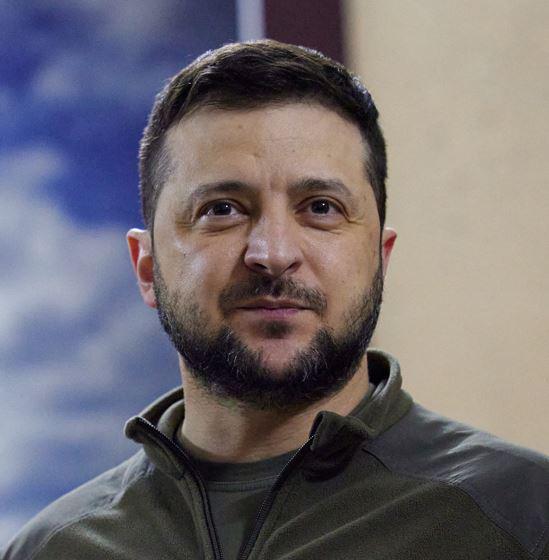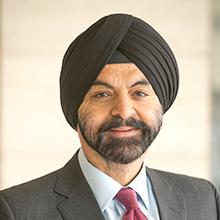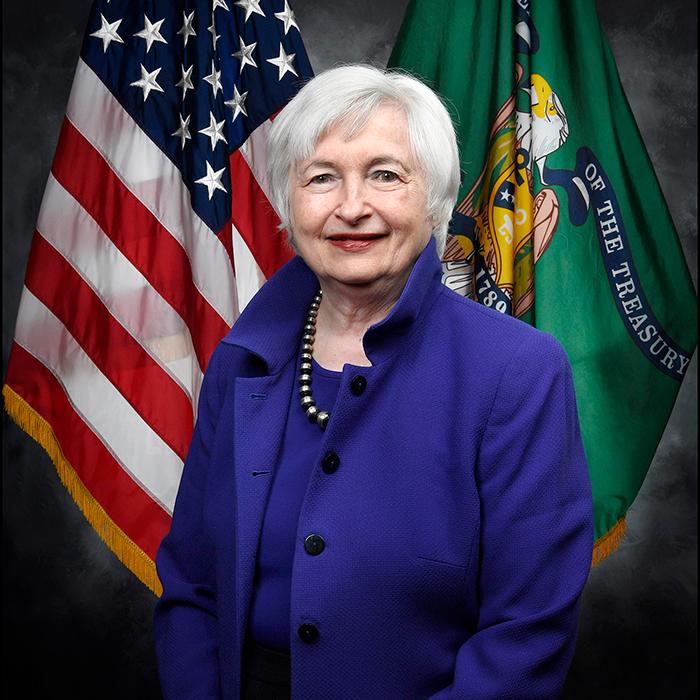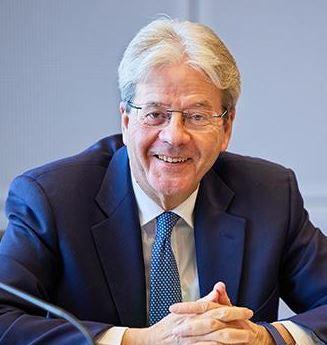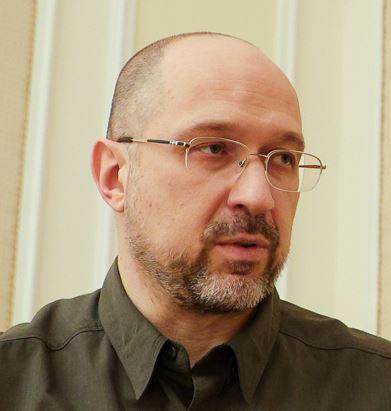Fourth Ministerial Roundtable Discussion for Support to Ukraine

Fourth Ministerial Roundtable Discussion for Support to Ukraine
- ABOUT THE EVENT
- TRANSCRIPT
- AGENDA
GO TO SPEAKERS
Russia’s invasion has caused staggering losses for Ukraine’s people and economy, pushing at least seven million more Ukrainians into poverty. The war has also had devastating repercussions for the global economy, compounding an already challenging economic environment with surging inflation, rising food and fuel prices, and rising fragmentation. For that reason, continued support to help Ukraine stabilize, repair and rebuild is an investment in global stability and prosperity. The Fourth Ministerial Roundtable Discussion on Ukraine took place on October 11, 2023, as part of the World Bank–IMF Annual Meetings in Marrakech, co-chaired by the Government of Ukraine, the World Bank, and the International Monetary Fund, and focused on financial support for Ukraine, its impact, and global learning from the support.
Watch this event with simultaneous interpretation available in Arabic and French.
[Anna Bjerde] Good evening, everybody. I think we're going to get started. I want to start really by welcoming you to this fourth ministerial roundtable discussion on Ukraine. A very warm welcome to all of those of you who are here in the room with us in Marrakesh, but also for those of you who are joining us online. We're gathering today, as we have in the past, to discuss our ongoing support to the people and to the government of Ukraine. We're going to discuss the impact on the country and across the globe and also our global learning from our support. As Russia's invasion of Ukraine continues, we applaud the government of Ukraine for its leadership and for fostering the country through the hardest of times. Now, without further ado, we will turn to a message from President Zelensky.
[Volodymyr Zelensky] Ladies and gentlemen, I'm glad to address you. First of all, I would like to mention a terrible natural disaster that happened this fall. On eighth of October, it was one month since the earthquake in Morocco that claimed lives of many people, destroyed homes and left children parentless. My condolences to all those who lost their loved ones and my gratitude to all those who helped people escape the disaster. No one can stop the natural events that happened on the planet. But we all have to make sure that the evil element of human nature does not destroy lives and leave ruins. We must cooperate to save from destruction every nation against which the gates of terror or aggression have been opened. I thank everyone who is helping Ukraine defend itself from Russia's unprovoked and brutal aggression. And I thank all those assisting in the rebuilding of Ukraine after attacks from Russian artillery and missiles and Iranian killer drones. Almost 3,000 Iranian drones were used against us in the war of terror. Ukrainians will always be grateful to every leader and every nation that support us. But please do not forget that when it comes to protecting lives from aggression and terror, one of the main factors is the continuity of support. The resilience of the resistance depends on it. When an aggressor finds itself on a tragedy of defeat, as Russia does in its war against us, it always relies on the thing. It is not ready to admit that its decision to launch an aggression was a mistake. It is not prepared to retreat from foreign land. Not yet, but the day will come. And to prevent it, Russia tries to make one last bet, bet on the idea that the world won't be able to support the defense of life and nation's freedom as long as needed. We are now at a point when it is decided whether aggressor and terror will once again become a customary way for one nation to relate to another. What then becomes of our world? What becomes of the children of our nations? Let them learn what education is before they learn what weapons are and let them learn the word “happiness” before the word “war.” I propose five points. First, there should be such powerful and truly global sanctions against anyone who destroys lives so that the destroyer pays the highest price for its aggression. I thank everyone, everyone who supports Ukraine with sanctions against Russia. Second, the assets of the aggressor and the assets of all those who helped him must be confiscated to compensate the damage caused. I am grateful to all those who are doing this work now with the Russian assets in favor of our nation. Third, we need real guarantees of long-term financial support to protect life. The resilience of defense is always based on the resilience of society. And when there is such support, aggressors and terrorists will not have the illusion that they can outlast and win something for themselves. Of course, the use of funds should be fully controlled and accountable just as it is with funds for Ukraine. By the way, we use this support just as intended force. A reliable mechanism must be introduced to stimulate private investments for a nation that conducts a just defense, especially a mechanism for ensuring military risks and multiplying donor capital with private capital. This is something that will always be of help. And the fifth point is quite traditional for our world. This is about boosting export credit agencies and project financing to ensure the implementation of the investments and infrastructure projects. And when we talk about all these, it is important to hear not only Ukraine. That's what makes Ukraine resilient in the fight for independence and brings our nation's victory closer. Being a model of assistance for any other free nation. Together, we can create a working model of how to make the world secure from evil elements of human nature. Thank you for your attention. Thanks for your support. And I wish you all peace. Slava Ukraini.
[Anna Bjerde] I will now invite Denys Shmyhal, Prime Minister of Ukraine, for remarks.
[Denys Shmyhal] Thank you, dear Anna. Dear President of the World Bank Group, Ajay Banga. Dear Managing Director of the International Monetary Fund, dear Kristalina. Your excellencies, ministers, secretaries, distinguished representatives of the governments and international organizations, ladies and gentlemen, I will start by thanking everyone who supports Ukraine today. We are incredibly grateful for the support that our partner countries and international financial organizations have given us over the past 19 months of full-scale war. It has helped us to survive. It helps us defend ourselves. It helps us believe in the future. Thank you for that. For its part, Ukraine has shown incredible resilience. When we analyze the situation, we understand what has made this possible. The first is reform. Reforms ensure resilience, which is crucial in times of severe shock. This resilience is relevant for any other kind of shock: natural disasters, climate change or financial crisis. That is why we are continuing our comprehensive reforms with a particular focus on training our institutions, anti-corruption policies and digitalization. Our government is currently preparing a single reform plan until 2027. This will be a roadmap that combines the initiatives and recommendations of international partners as well as proposals from the Ukrainian side. Second, international support and cooperation with international financial institutions, World Bank, IMF, EBRD, EIP. Thanks to the support of our international partners, we have managed to stabilize the situation. At the same time, the state budget deficit will be around 20% this year. Next year, it will be 21% of GDP. To fully cover this budget deficit, we will need to attract external financing of about 42 billion dollars both this year and next year. We expect support from all our partners, both in equal amounts. This will allow the government to meet its basic social obligations, to pay pensions, salaries to doctors and teachers, and to help those whose homes have been destroyed by Russia. Third, the private sector. Even with strong support from our partners, Ukraine's economy remains strong thanks to domestic revenues. Today, we use all the taxes we collect for the security and defense, and it is the private sector that keeps the Ukrainian army going. And when the war is over, we expect the private sector to play a key role in Ukraine's recovery and reconstruction. The World Bank has helped us assess the recovery needs. We need 14 billion dollars for the rapid recovery project alone. This is where we need the solidarity and support of the international community. It is the aggressor who must pay for aggression, including the cost of rebuilding what it has destroyed. That is why we are working with the international community to create a universal international compensation mechanism for the confiscation or other use of frozen Russian assets. Dear colleagues, I would like to thank you all once again for supporting the Ukrainian people at the most difficult time in our history. We believe that Ukraine will prevail in the name of justice, freedom, and democracy. Glory to Ukraine. Slava Ukraini.
[Anna Bjerde] Thank you very much. It's now my pleasure to invite World Bank President, Ajay Banga.
[Ajay Banga] Thank you, Mr. President, Mr. Prime Minister, and good evening, everybody. I want to begin by commending the government and the people of Ukraine. We're inspired by their remarkable resilience in the face of devastation. Despite the war, kids are going to school, businesses are running, and the elderly are still getting their pensions. Yet the war continues to rob Ukraine's people of a decent life and a better future. And of course, it is exacerbating global hunger, inflation, and geopolitical divides, and destabilizing the challenging global landscape of climate change, fragility, and food insecurity. And the route to recovery is wrong. This can only be solved by strong partnerships and standing together in unity as a global community. We do need an all-hands-on-deck approach, including donor countries who are generously giving for Ukraine's social and economic needs and supporting businesses, many of whom are at this table today; civil society, which is monitoring projects to improve transparency and accountability; international financial institutions and UN partners, they're supporting the country's humanitarian and economic needs and the private sector, as the Prime Minister just said, which is demonstrating resilience and ingenuity to keep the economy going and to protect jobs. The World Bank is trying to do its part. IBRD has mobilized 38 billion dollars, 94% of that through partner resources from your generosity for Ukraine, so that it can provide essential services to more than 12 million Ukrainians. Under IDA's crisis facility, we are mobilizing increased support, both for the poorest countries affected by wars, but specifically also for Ukraine and Moldova. IFC and MIGA are leveraging practice support to support firms to trade and essential goods, provide working capital and finance, and CaPEx for essential infrastructure services. When the Finance Minister, Mr. Marchenko and I met yesterday, we discussed how Ukraine can attract more private investment for future growth by charting out a clear and predictable policy path in key sectors. I'm so glad to hear from him that Ukraine is developing exactly such a multi-year plan, including reforms that encourage competition and accelerate alignment with EU standards. If the right conditions are created, we estimate that as much as one-third of Ukraine's future needs could be met with private sector financing. For example, we see potential in digital, where harmonized procedures and extending the digital infrastructure will be critical. We see potential in green energy supported by tariff reforms and in agriculture through the continuing land reform that they have already begun. We also want to apply the lessons learned and the innovations from work in Ukraine to help other countries, especially those in fragile and conflict-affected situations. Lessons include ensuring sufficient resources for the government to function, prioritizing delivery of essential goods and services, and working capital for businesses, and harnessing digital systems to transfer resources efficiently and accountably. But I think the broader and really sad lesson is that conflict and war are setting back development and increasing poverty. Learning from the resilience and the courage of this country and its people, but also from the collective innovations spurred by all of our support to Ukraine. I think this can help others in similar situations today and move us all to a better future. To the people of Ukraine and to your leadership, thank you once again for your unbelievable resilience. And rest assured that we are right with you at the time that you will need us.
[Anna Bjerde] Thank you very much. [audience applauds]
[Anna Bjerde] And it's now my pleasure to invite Managing Director of the IMF, Kristalina Georgieva.
[Kristalina Georgieva] President Zelensky and Prime Minister Shmyhal gave us a very sobering picture of a nation so terribly harmed by unnecessary and unjust war. But also you saw them standing firm. And I can say the same for the economic team of Ukraine. War brings profound human and economic costs to Ukrainians. It also harms the world economy at the time when we are struggling to recover from shocks. It was so unwise to stop the Black Sea Grain corridor, bringing food to people in poor countries. We have just worked with the government of Ukraine on our second review under the IMF program. As you all know, this is a program that mobilizes 115 billion dollars over four years to provide financial stability and predictability for Ukraine. This second review, like the first one we completed in June, demonstrates that the economic management of the country, despite the conditions of war, is outstanding. So here is what I can report to you. First, Ukraine is bringing recovery at a higher speed than we initially anticipated. Growth is likely to be on the higher end of our 1-3%, more in the direction of 3%. And as always, my Ukrainian friends tell me, we will beat even dead. Second, we have seen continuation of structural reforms, difficult reforms. They're difficult in peacetime. They're even more difficult during wartime, but they're being implemented. Third, we see policies that safeguard macroeconomic and financial stability to a point that inflation in Ukraine is now in single digits. We have some countries in our membership that are not in a war and are struggling to get into single-digit territory. Last but not least, we see the Central Bank of Ukraine moving gradually to manage flexible exchange rate from a position of strength. This is all very good, but it would only be sustained with our unwavering support. I completely endorse what President Banga said about looking for opportunities for this economy to grow, to do better. We have identified the needs for next year to be a bit higher than we initially thought, some three billion dollars higher. I do believe strongly that our investment in Ukraine, this is not charity, this is an investment in Ukraine, is going to pay back to the Ukrainian people, to the economy of the region, and to this message that no war can be allowed to crush a nation that you are sending to the rest of the world. Thank you. [audience applauds]
[Anna Bjerde] I will now invite United States Secretary of the Treasury, Janet Yellen, please.
[Janet Yellen] I thank President Zelensky and Prime Minister Shmyhal, for addressing this group and appreciate Minister Marchenko, being here with us in person. This, our fourth roundtable, is an important show of our continued condemnation of Russia's aggression and of the robust international support for Ukraine from its allies and partners. Let me be clear about the war. The United States condemns Russia's brutal war in the strongest possible terms. Let me also be clear about our unwavering support. We have provided robust economic support to Ukraine, and the United States will support Ukraine alongside our allies for as long as it takes. Russia's unprovoked and horrific wars led to the terrible suffering of the Ukrainian people and massive economic damage. It's also led to devastating effects on food security around the world caused by Russia's callous targeting of Ukraine's agricultural export, infrastructure, and recent withdrawal from the Black Sea Grain initiatives. It's crucial that we increase our support for countries around the world dealing with these impacts. But Ukraine has shown valiant resilience and its government has done remarkable work over the past year and a half supporting Ukraine's economy and the Ukrainian people. Through it all, President Zelensky has maintained a clear focus on fighting corruption and strengthening accountability and good governance. Continuing to address these difficult issues will be key to delivering the future that Ukrainians deserve. Ukraine's economic team has also delivered sound policies and solid results in an unbelievably challenging situation. Ukraine's positive performance on its 15.6 billion dollars IMF program to date has also been key for delivering macro stability and advancing reforms. Continued efforts under the program will be essential to recovery and reconstruction. We also appreciate the focus of the World Bank and EBRD on support for Ukraine. The accountability and strong safeguards that the Multilateral Development Banks provide are essential. For our part, the United States has provided not only military support, but also significant economic support. This assistance has played a critical role in supporting Ukraine's home front in its resistance to Russia's illegal war, and this includes support to help maintain critical public services like schools and hospitals. We are heartened that our global partners in this effort continue to stand up in support of Ukraine, and that includes our European allies who have stepped up and committed to providing 50 billion Euros over four years for Ukrainian economic assistance and recovery. As an international community, we must continue to provide Ukraine the significant, predictable, and timely financial support it needs to keep the government running. And in response to Russia's war of choice, our historic sanctions coalition will continue restricting Russia's access to the technology, equipment, and funds it needs to supply its military. That includes through our price cap on Russian oil and refined petroleum products, which has successfully targeted Russia's key source of revenue while maintaining stability in global oil markets. The American people are proud to stand resolutely with Ukraine. Thank you. [audience applauds]
[Anna Bjerde] Now it's my pleasure to invite European Commissioner for the-- [Unknown Speaker] [speaks in foreign language]
[Paolo Gentiloni] Our colleagues, Sergii Marchenko, we confirm our support to Ukraine. You are fighting for the values we believe in. I think we should be proud as international partners of the fact that we contributed to cover both last year and this year financing gap for Ukraine. Also, thanks to this solidarity, Ukraine's economy is in better shape today than many expected one year ago. Recent economic developments, including the upward revision of the growth forecast for this year quickly decelerating inflation, as Kristalina just remembered, a strong buildup of reserves, show the effectiveness of also the effect of our support. The European Union has been the largest donor this year. Our macro financial assistance instrument has dispersed 13.5 billion. We expect to pay out another 4.5 billion by the end of the year. And this, of course, is part of the much bigger package of eight. Ukraine has shown that it can continue to deliver important economic reforms. Our current financial assistance conditions support, among others, Ukraine's judicial reform, the deregulation of economic activity, and improvements in the insolvency regime. Overall, there is very good progress and I'm optimistic about the prospects of Ukraine fulfilling all conditions by the end of the year. For 2024 and beyond, the Commission's proposal for 50 billion Euros for the next four years will allow us to help considerably in addressing Ukraine's financing needs going forward. This, that we call Ukraine facility, will bring together EU's comprehensive support, including for budgetary needs, reforms and investments, and technical assistance. Mobilizing official financing remains key. We count on the support from all international partners. We also must align conditionality for support between the international donors and the international financial institutions as much as possible to ensure that they are consistent. This work is already underway in the context of the platform for Ukraine, including through the preparation by Ukraine of the Ukraine Plan, a growth vision based on reform and investment roadmap. Beyond conditional financial support, Ukraine's EU candidate status has also provided a powerful reform impetus despite the ongoing war. We will continue to stand by Ukraine as long as it takes. Thank you. [audience applauds]
[Anna Bjerde] Thank you very much. This now concludes the public portion of the roundtable, and we will take just 30 seconds to transition into the closed doors.
00:00 Welcome by Anna Bjerde, Managing Director of Operations, The World Bank
01:01 Remarks by Volodymyr Zelensky, President, Ukraine
07:12 Remarks by Denys Shmyhal, Prime Minister, Ukraine
11:33 Remarks by Ajay Banga, President, World Bank Group
15:39 Remarks by Kristalina Georgieva, Managing Director, International Monetary Fund
20:08 Remarks by Janet Yellen, U.S. Secretary of the Treasury
24:39 Remarks by Paolo Gentiloni, Commissioner for Economy, European Commission

